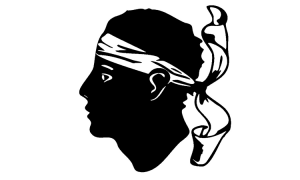Language/Corsican/Grammar/Adjectives
Hi Corsican learners! 😊
In today's lesson, we will be discussing adjectives in Corsican. Adjectives are words that describe or modify nouns and pronouns. They can be used to give more information about the noun or pronoun they are modifying. In this lesson, we will look at how adjectives are used in Corsican and how they can be used to make your sentences more interesting and descriptive.
Adjective Placement
In Corsican, adjectives usually come after the noun they are modifying. For example:
- U ciucciu hè bellu - The dog is beautiful
- A casa hè grande - The house is big
However, there are some exceptions to this rule. For example, when using certain adjectives such as "bonu" (good) or "malu" (bad), they can come before the noun they are modifying. For example:
- Un bonu amicu - A good friend
- Un malu amicu - A bad friend
Adjective Agreement
Adjectives in Corsican must agree with the noun they are modifying in gender and number. This means that the adjective must match the gender and number of the noun it is describing. For example:
- U ciucciu hè bellu - The dog is beautiful (masculine singular)
- I ciucci sò belli - The dogs are beautiful (masculine plural)
- A casa hè grande - The house is big (feminine singular)
- E case sò grandi - The houses are big (feminine plural)
Comparative and Superlative Forms
Adjectives in Corsican can also be used in their comparative and superlative forms. To form the comparative form of an adjective, you add the suffix "-iore" to the end of the adjective. For example:
- Bellu - Beautiful
- Belliore - More beautiful
To form the superlative form of an adjective, you add the suffix "-issimu" to the end of the adjective. For example:
- Bellu - Beautiful
- Bellissimu - Most beautiful
Conclusion
In this lesson, we have looked at how adjectives are used in Corsican. We have seen how they are placed in relation to the noun they are modifying, how they must agree with the noun in gender and number, and how they can be used in their comparative and superlative forms.
We hope that this lesson has helped you to better understand how adjectives are used in Corsican.
If you have any questions, please ask them in the comments section below.
Feel free to edit this wiki page if you think it can be improved. 😎
Related Lessons

